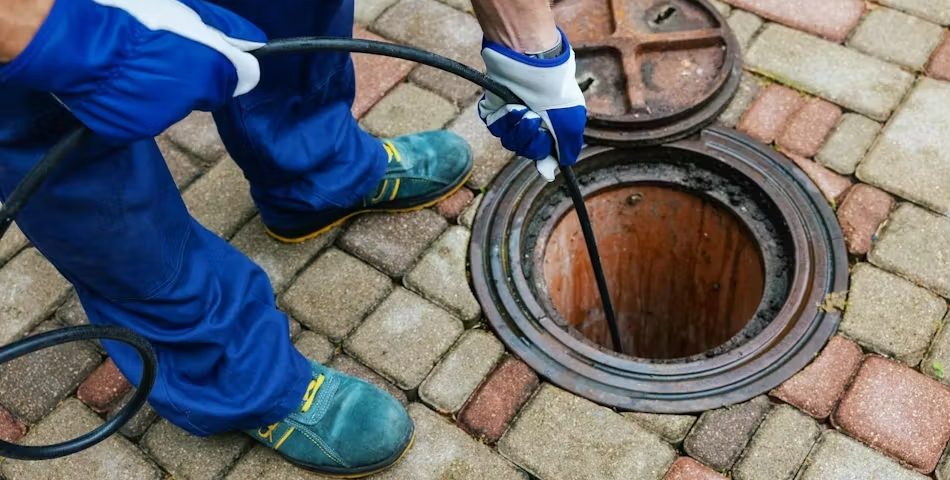Effective Methods for Cleaning a Clogged Drain

The Dangers of Roof Leaks: Why Timely Repairs Are Essential
May 26, 2025
How to Ensure Your Plumbing System is Working Properly
June 16, 2025Introduction
Clogged drains are a common household issue that can lead to slow drainage, unpleasant odors, and even plumbing damage if not addressed. Fortunately, there are several effective methods to clear a clogged drain, ranging from natural solutions to more powerful tools and chemical cleaners. The right method depends on the severity of the blockage. Below are some of the best ways to unclog a drain and prevent future clogs.
1. Boiling Water (For Minor Clogs)
Boiling water is a simple yet effective method for clearing minor clogs caused by grease, soap, or mild buildup. To use this method, bring a pot of water to a boil and carefully pour it down the drain in small stages rather than all at once. The high temperature helps dissolve substances that may be restricting water flow. This method is particularly useful for kitchen sinks where grease tends to accumulate. However, it should not be used on PVC pipes, as excessive heat could weaken or damage them over time.
2. Baking Soda & Vinegar (Natural Solution)
Baking soda and vinegar provide a natural and eco-friendly solution for clogged drains. To use this method, pour ½ cup of baking soda into the drain, followed by 1 cup of vinegar. The mixture will fizz and bubble as it reacts, helping to break down debris and grime inside the pipes. Let it sit for about 10-15 minutes to maximize its effectiveness, then rinse with hot water to flush away the loosened buildup. This method is ideal for removing organic material and deodorizing the drain without using harsh chemicals.
3. Plunger (For Tougher Clogs)
A plunger is an effective tool for dislodging tougher clogs by using suction and pressure. To begin, fill the sink or tub with enough water to completely cover the plunger’s cup, as this helps create a tight seal. Position the plunger firmly over the drain and plunge vigorously for about 20-30 seconds. The repeated pressure changes help break up and remove the blockage. If necessary, repeat the process until the water begins draining smoothly. This method works well for both sink and bathtub drains, especially when dealing with clogs caused by soap scum, hair, or food debris.
4. Drain Snake (For Stubborn Clogs)
For stubborn clogs that cannot be cleared with a plunger, a drain snake or a straightened wire hanger can be used to physically remove the blockage. Insert the tool into the drain, twisting and maneuvering it as you push it deeper. Once it reaches the clog, continue twisting to help break it apart, then pull the tool out to remove trapped hair, debris, or buildup. This method is particularly useful for bathroom sinks and shower drains, where hair accumulation is a common cause of clogs.
5. Chemical Drain Cleaners (Use with Caution)
Chemical drain cleaners can be a powerful option for clearing tough clogs when natural methods fail. These commercial products contain strong chemicals that dissolve hair, grease, and other blockages. However, they should be used with caution—always follow the manufacturer's instructions and avoid overusing them, as frequent use can corrode pipes over time. Additionally, never mix different drain cleaners, as this can create dangerous chemical reactions. If possible, opt for an enzymatic cleaner, which uses natural bacteria to break down clogs without damaging the plumbing.
6. Preventative Maintenance
To prevent clogs from forming, regular drain maintenance is essential. Using drain strainers in sinks and showers helps catch hair, food particles, and other debris before they enter the pipes. Running hot water down the drain weekly can help dissolve minor buildup and keep pipes clear. Additionally, avoid pouring grease, coffee grounds, or food scraps down the sink, as these substances can solidify and cause blockages. By following these simple preventive measures, you can reduce the chances of dealing with clogged drains in the future.
Conclusion
Dealing with a clogged drain can be frustrating, but with the right approach, you can clear blockages efficiently and prevent future issues. Simple methods like boiling water, baking soda and vinegar, and plunging are great for minor to moderate clogs, while drain snakes and chemical cleaners can help tackle tougher blockages. However, prevention is always the best solution. By practicing regular drain maintenance and avoiding materials that can cause clogs, you can keep your drains running smoothly and avoid costly plumbing repairs.


